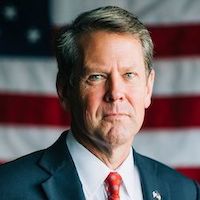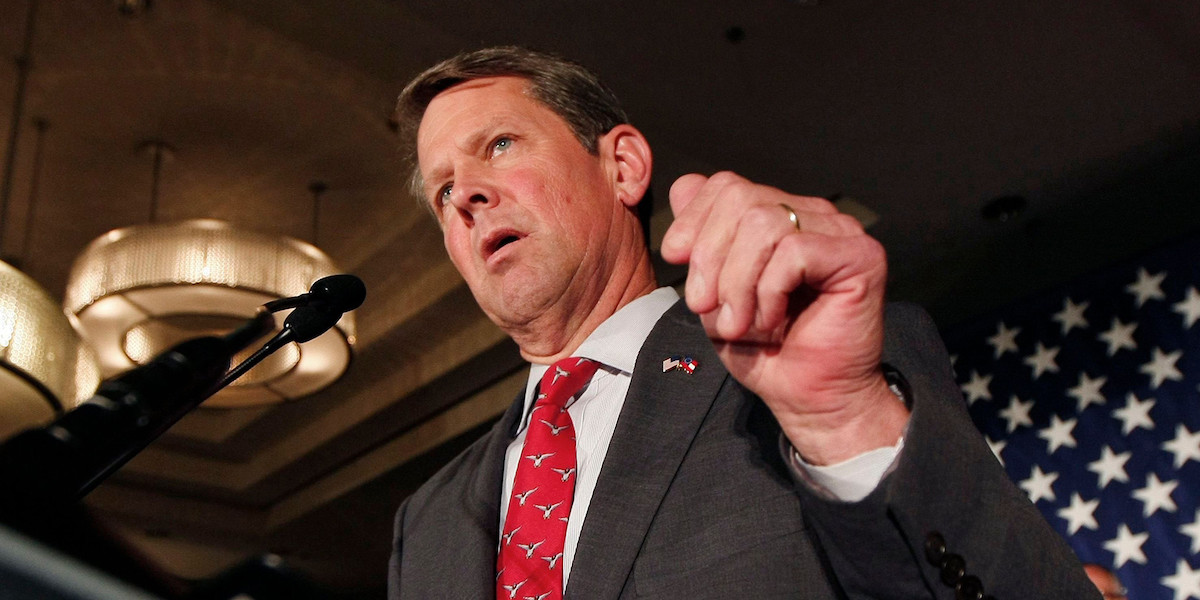
Washington, D.C., March 15 – While nationally 111,804 jobs were gained by people with disabilities, 8,682 people with disabilities left Georgia’s workforce. Georgia now ranks 37th in the nation based on the employment rate of people with disabilities. Out of the 661,498 working-age (18-64) Georgians with disabilities, only 227,895 have jobs. The newly published 2018 Annual Disability Statistics Compendium shows Georgia has an employment rate of 34.5 percent for people with disabilities.
Further analysis by the nonpartisan advocacy group RespectAbility shows that despite the job losses in the past year, employment opportunities for Georgians with disabilities have been steadily expanding with the overall disability employment rate increasing from 33.9 percent in the previous year. Back in 2016, more than 28,000 people with disabilities entered the workforce.
“While employees with disabilities typically have higher retention rates than their non-disabled peers, a certain amount of turnover is to be expected,” said Philip Kahn-Pauli, RespectAbility’s Policy and Practices Director. “As people with disabilities enter the workforce, they are exploring different jobs and searching for the right career. Sometimes the first job isn’t a good fit. In the end, however, finding the right job for the right people with disabilities can improve business’ bottom line.”
With Gov. Brian Kemp now in place in the Governor’s mansion in Atlanta, he takes the reigns of a state government that has been nationally recognized for advancing disability employment opportunities. In 2018. Georgia’s Disability Employment Initiative was recognized by the federal government for innovative policies and best practices that empower Georgians with disabilities. “This federal grant provides opportunities for Georgians who otherwise would find challenges in marketing themselves to leading employers,” said Joe Dan Banker, Assistant Commissioner for the Office of Workforce Development at the Technical College System of Georgia. Using a broad range of strategies, this has been a crucial program for many people with disabilities.
The Georgia Vocational Rehabilitation Agency (GVRA) has vocally advocated for the business case of including people with disabilities in the workplace. In an interview with the Atlanta Business Chronicle, GVRA Executive Director Sean Casey focused on the misconceptions that keep employers from hiring workers with disabilities. “Some employers fear that making accommodations will be an expensive, elaborate process,” he said. “Most people who have lived with a disability for any length of time make minor adaptations regularly to get things done, with no impact at all to a potential employer.”
“Our nation was founded on the principle that anyone who works hard should be able to get ahead in life,” said Hon. Steve Bartlett, current Chairman of Respectability, who co-authored the Americans with Disabilities Act when he was in Congress. “People with disabilities deserve the opportunity to earn an income and achieve independence, just like anyone else.”
A National Issue
Beyond Georgia, how is the workforce changing for people with disabilities? What is driving these changes? The answer is simple. According to Vincenzo Piscopo of the Coca-Cola Company: “People with disabilities bring a unique skill set that it is very valuable for companies.” He went on to add, “As it relates to employment and competitiveness in the workplace, we have to stop thinking of disability as a liability and start thinking of it as an asset.”
Brand-name companies such as JP Morgan Chase, Coca-Cola, Ernst & Young, IBM, Walgreen’s, Starbucks, CVS and Microsoft show people with disabilities are successful employees. These companies also know that these workers improve the bottom line. “People with disabilities bring unique characteristics and talents to the workplace,” said RespectAbility President Jennifer Laszlo Mizrahi. “Hiring people with disabilities is a win-win-win for employers, people with disabilities and consumers alike.”
As more companies hire employees with disabilities, conversations are shifting to focus on inclusion. “Disability inclusion is no longer about automatic doors, curb cuts, ramps, and legislation,” says Jim Sinocchi, Head of the Office of Disability Inclusion at JP Morgan Chase. “Today, the new era of disability inclusion is about “assimilation” – hiring professionals with disabilities into the robust culture of the firm.”
According to the Census Bureau, there are more than 56 million Americans living with a disability. Disabilities include visible conditions such as spinal cord injuries, visual impairments or hearing loss and invisible disabilities such as learning disabilities, mental health or Autism.
An Election Issue
Voter research, conducted by RespectAbility, shows how disability issues connect to all aspects of American life. “Fully three-quarters of likely voters either have a disability themselves or have a family member or a close friend with disabilities,” said former Representative and Dallas Mayor Steve Bartlett. “People with disabilities are politically active swing voters, and candidates should take note of the important issues they care about.”
It remains to be seen how engaged Gov. Kemp will be on disability and disability employment issues. In February, he included a new budget proposal to address mental health issues in Georgia’s public school system.
As 2019 moves into 2020 and the political campaign season heats up, continuing job growth for people with disabilities will be a crucial indicator of the health of the American economy.

Be First to Comment